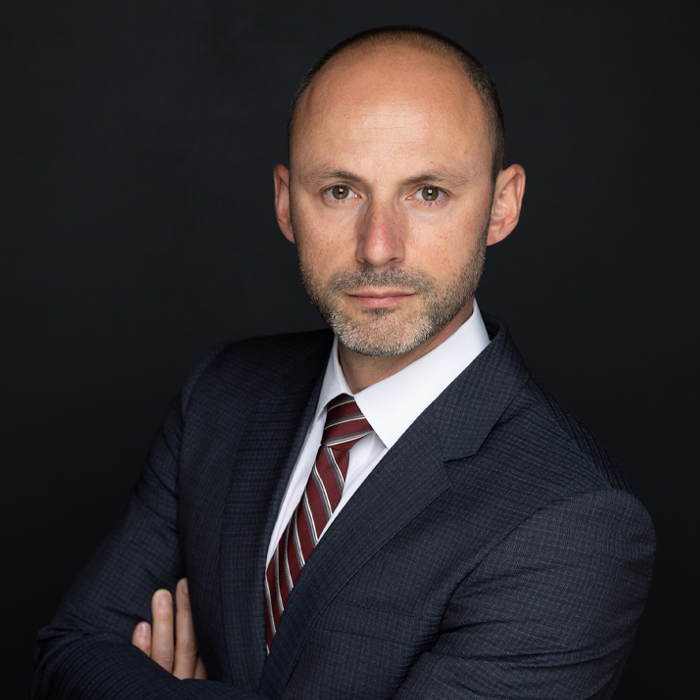If you are facing criminal charges, you need a criminal defence lawyer in Calgary to look at your case as soon as possible.
A criminal trial is the legal way to find out if someone has broken the law. The Criminal Code of Canada has a number of sections that explain how the trial process works. For a step-by-step overview of what to expect in court, check out our Court Process in Calgary article.
There are three main kinds of crimes in Canada:
- Summary conviction offences are less serious crimes, like stealing something that costs less than $5,000. Most of the time, the most time someone can spend in jail for these crimes is two years and/or a fine.
- Another is indictable offences. Some examples of indictable crimes that are more serious are murder, sexual assault, and robbery. These can lead to prison sentences of two years to life, depending on the crime. If you are charged with an indictable crime, you can usually choose to the mode of your trial.
- The third type are hybrid offences. With these, the Crown prosecutor can choose to go ahead with either an indictment or a summary conviction. Driving while drunk, assault, and theft are all types of hybrid crimes.
The goal of the trial process is to find out what really happened while also protecting the rights of the person who is accused. To further understand the nuances of a trial, you might explore our detailed discussion on the Criminal Trial Process in Calgary.
It involves showing evidence, questioning witnesses, making legal arguments, and finally, deciding if the person is guilty or not.
Strategic Criminal Defence is a top Google-rated criminal defence firm in Calgary, with over 500 5-star reviews. Our firm, and our experienced legal team, have defended clients in over 10,000 criminal cases. Leveraging our extensive network of lawyers and decades of experience, we craft defence strategies to help those accused of a criminal offence beat the charge.
The lawyers at Strategic Criminal Defence are both highly experienced and dedicated to defending your rights and future in the face of these charges. Contact a lawyer today by calling (403) 719-6410.
Key Takeaways
- A trial is the official legal process to see if someone is guilty of a crime.
- There are three main types of crimes in Canada: summary (less serious), indictable (more serious), and hybrid (where the Crown decides).
- The worst punishments for summary conviction crimes are usually two years in jail and/or fines of up to $5,000.
- Indictable offences can get you a lot more time in prison, from two years to life, depending on the crime.
- People who are waiting for their trial may be let out on bail if they agree to certain conditions, such as reporting to the police, following curfews, or staying away from certain people or places.
- There are many ways to fight serious charges, like questioning the reliability of witnesses, proving that you weren’t there, or disputing the evidence.
- You have important rights during a trial, like the right to be thought of as innocent, the right to have a lawyer, and the right to remain silent.
- The Crown has to prove guilt “beyond a reasonable doubt,” which is a high bar.
- Many cases can be settled before they go to trial by talking to the prosecutors. This can mean lower charges or other options.
How Our Lawyers Help With a Criminal Trial
Our lawyers will be there for you every step of the way through the criminal justice system.
- We give you legal advice about your rights and possible defences before any charges are even filed.
- Our lawyers make sure you don’t say anything to the police that could hurt your case for no reason. We can also be there to make sure the police don’t break the law when they talk to you.
- Our lawyers talk to witnesses, get video from security cameras, and gather documents that could help your case. We could hire forensic experts, doctors, or technical analysts as expert witnesses to question the Crown’s evidence or give other explanations in cases that are hard to understand.
- We know how the courts in our area work. For example, we know which judges are more likely to be strict or lenient on some issues and which prosecutors are more likely to be willing to talk things over.
- During the trial, our lawyers make strong cases, cross-examine Crown witnesses to show flaws in their testimony, and help you decide if you want to testify in your own defence. Our experience in court can mean the difference between being found guilty and not guilty.
Consequences of Criminal Charges in Canada
There are three main types of crimes in the Criminal Code: summary conviction offences, indictable offences, and hybrid offences.
- A person who is found guilty of a summary offence could go to jail for up to two years and pay a fine of up to $5,000. Most of the time, first-time offenders don’t go to jail for summary crimes. Instead, courts often give them probation, community service, or smaller fines. Most summary offences don’t have a minimum sentence, so judges can choose how long to sentence someone.
- Murder, sexual assault, robbery, and drug trafficking are all examples of indictable offences. There are a lot of different punishments for indictable offences, but the most severe ones can get you life in prison.
- The Crown prosecutor can choose to pursue a summary conviction or an indictment for a hybrid offence, depending on how serious the case is. Assault, driving while impaired, and theft are all examples of hybrid offences. The Crown’s choice has an impact on both the maximum penalties that can be given and the way the court will work.
- Criminal convictions can lead to a permanent criminal record that makes it harder to find work, travel (especially to the US), and find a place to live. Some convictions can also have other effects, such as making it illegal to drive, own a gun, or register as a sex offender.
Criminal Trial Process in Canada
The first thing that happens is that the person accused goes to court to be arraigned.
- This means that they will hear the charges against them and then say whether they are guilty or not.
- Next, a trial date is set if they say they are not guilty. Before the trial, the Crown prosecutor (who speaks for the public) and your lawyer both get ready by gathering evidence.
- The Crown goes first in the trial and tries to prove “beyond a reasonable doubt” that the person did the crime. They might call people to testify who swear to tell the truth. After that, the defence tells their side of the story by either questioning the Crown’s evidence or giving other reasons for what they say.
- After both sides have made their closing arguments, the judge and/or jury looks at all the evidence. In serious cases like murder, a jury decides if someone is guilty. Most of the time, a judge decides on a sentence.
Types of crimes we handle
At Strategic Criminal Defence, we handle a wide range of criminal cases in Calgary and the surrounding areas. Our experienced lawyers have successfully represented clients in various criminal cases, including:
- Impaired Driving: Including cases involving operating a motor vehicle under the influence of drugs and alcohol, and related offences like refusing to provide a breath sample or driving while disqualified.
- Domestic Violence: Any form of abuse or violence that occurs within a domestic or intimate relationship. Domestic violence can occur in any type of intimate relationship, including marriages, common-law partnerships, and dating relationships. These crimes include assault, harassment, sexual assault, and other related offences.
- Violent Offences: We handle cases involving all types of assault, homicide, manslaughter, first- and second-degree murder, and robbery.
- Drug Offences: We offer legal representation for drug-related crimes, such as possession, trafficking, production of controlled substances, and organized crime.
- Youth Offences: We have experience representing young offenders under the age of 18. Youth offences can include a range of criminal acts, from minor offences like theft and mischief to more serious offences like assault and drug trafficking.
- Administration of Justice: We provide legal services for cases involving breach of court orders, obstruction of justice, failure to appear, perjury, and other administration of justice-related offences.
- Criminal Driving: Such as cases related to dangerous driving, careless driving, criminal negligence in the operation of a motor vehicle, and other criminal driving offences.
- Assault & Threats: These cases involve the use or threat of force against another person. These crimes include assault, uttering threats, and other related offences.
- Sexual Offences: We have experience representing clients in cases involving sexual assault, sexual exploitation, sexual interference, unwanted sexual touching, and other sexual offences.
- Property Crimes: We handle cases involving theft, fraud, shoplifting, vandalism, arson, possession of stolen property, and other property-related offences.
- Traffic Crimes: Including cases involving speeding, driving without insurance, racing, leaving the scene of an accident, and other related offences.
- Pardons, Record Suspension: We provide legal advice and services related to pardons and record suspensions.








